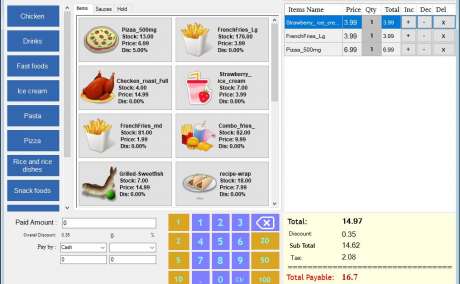
Description
Want to succeed in the house flipping market? Learn how to create a strong hous
Flipping homes can be a great way to make money in real estate—if you have a solid house flipping business plan in place. Without a clear plan, you might end up spending more than you earn. That’s why every successful real estate investor starts with a strategy that includes everything from property selection and financing to renovation and resale. In this article, we’ll walk you through the key steps to building a business plan that can help you succeed in this competitive market.
Why You Need a House Flipping Business Plan
A well-structured plan helps you stay focused, avoid mistakes, and track your progress. It ensures you know how much money you need, where to find properties, and how to sell them for a profit. Think of it like a roadmap—without it, you’re likely to get lost.
Whether you're new to house flipping or looking to scale your business, having a comprehensive strategy is key. A strong plan also makes it easier to attract investors or get loans, as lenders want to see how you will manage risk and make returns.
Step 1: Define Your Business Goals
Start by asking yourself some important questions:
Setting clear, measurable goals will guide every other part of your plan. For example, if your goal is to flip five houses a year, your plan will need to include enough funding and labor to support that.
Step 2: Do Market Research
Before you buy a property, you need to know which areas offer the best returns. Look for:
This is a critical part of your flipping houses business plan, and it will help you avoid investing in the wrong areas.
Step 3: Set a Budget
Flipping houses isn’t just about buying low and selling high. You need to calculate every cost, including:
Once you total these, subtract them from your expected sale price to estimate your profit. A good flip should return at least a 10–20% profit margin. Be sure to leave room for unexpected expenses!
Step 4: Secure Financing
Now that you know how much money you’ll need, it’s time to figure out where to get it. Your options include:
Make sure to include the cost of borrowing in your budget. High interest rates can eat into your profits if your flip takes longer than expected.
Step 5: Find the Right Property
Look for undervalued homes that can be improved with cosmetic updates or light structural work. Avoid homes with major issues like foundation damage or outdated plumbing—unless you have the experience and budget to fix them.
Create a checklist of what makes a property a good flip, including:
This section is a key element of a solid real estate flip business plan and can help you avoid costly mistakes.
Step 6: Plan Your Renovations
This is where many house flippers go over budget. Create a detailed renovation plan before you buy the property. Decide what to fix and what to leave alone. Focus on updates that add value, such as:
Work with trusted contractors and always get multiple quotes. Stick to your budget and timeline as closely as possible.
Step 7: Create a Marketing and Sales Strategy
Once your renovation is complete, it’s time to sell. Use online listings, social media, and real estate agents to market your property. Make sure your listing has:
If you're trying to sell quickly, consider staging the home or hosting an open house. A quick sale means fewer holding costs and a faster return on investment.
Step 8: Track Your Results
After the sale, evaluate your performance:
Keep records of all your projects so you can improve your process over time. This reflection stage is essential for growing your flipping business successfully.
Common Mistakes to Avoid
Even with a great plan, mistakes can happen. Watch out for these common errors:
Avoiding these mistakes will help you stick to your house flipping business plan and increase your chances of success.
Final Thoughts
Flipping houses can be a rewarding and profitable business—if you plan wisely. By following the steps above and developing a solid house flipping business plan, you’ll be in a much stronger position to succeed. Remember, the more prepared you are, the fewer surprises you'll face during the flip.
At RedHead Home Properties, we believe that smart planning is the key to successful real estate ventures. Whether you’re just starting out or looking to improve your process, taking the time to develop a clear and detailed strategy can set you apart in a crowded market.

Reviews
To write a review, you must login first.
From the Same Seller